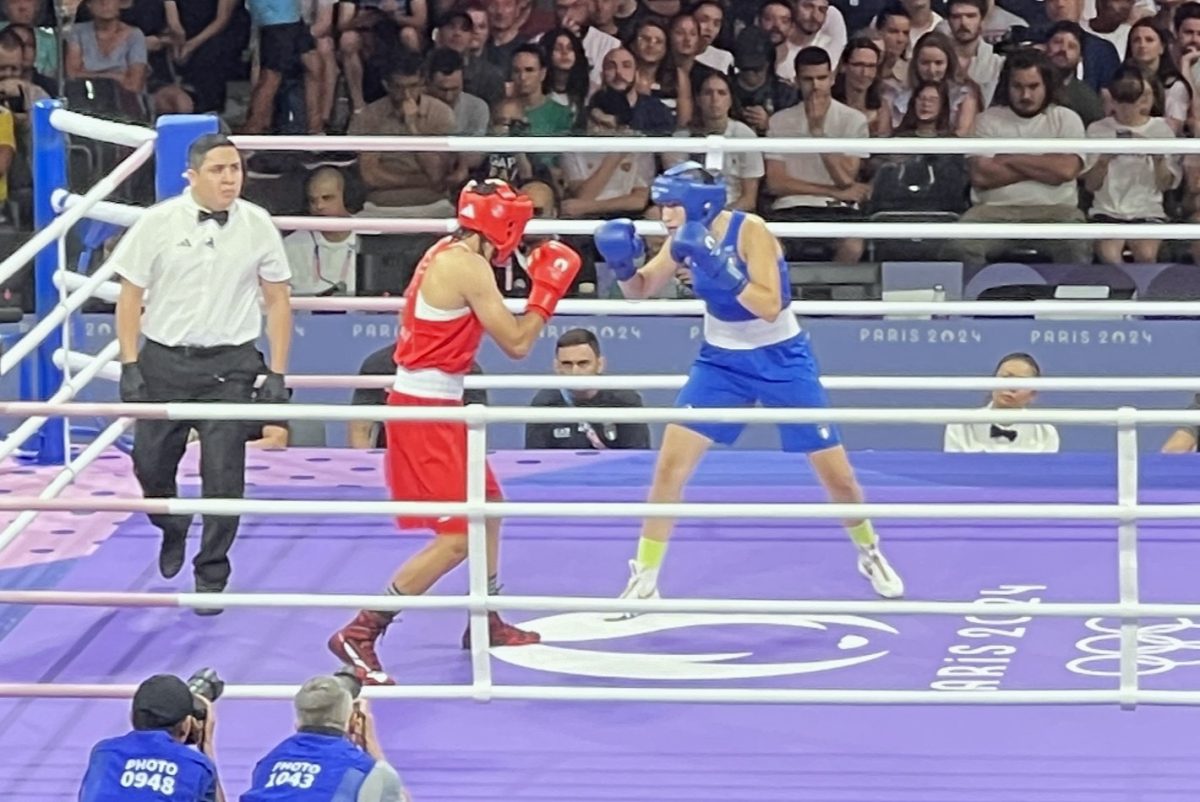The first time I was called a “man” in public was the one day that I decided, as a woman, not to shave my legs and wear shorts.
I was going to a local restaurant to get food for my mom and her friend, who were studying the entire weekend for a nursing certification exam. I was not going to shave simply to walk one block away and get food.
Yet the laughter and derision I got for choosing to present myself and my body in a different way was frustrating and painful. For women, the bar is set really, really high. We have to groom ourselves for the male gaze — and sometimes the female one — to an almost uncomfortable degree. Shaving, preening, prodding, and brushing. Combing, painting, and waxing.
What I found out after the 2024 Paris Olympics was that nothing protects women from the scrutiny of others, even if you are a star athlete and gold medal winner. What viewers of the Olympics did to Imane Khelif was horrible.
She was assigned female at birth and identifies as a woman. People argue that transgender individuals should not participate in the sports of their gender based on hormonal and biological differences.
But this isn’t that sort of debate. There is a quintessentially transphobic and racial bent to this discussion. Here are the facts as we know them.
Khelif, an Algerian, won gold against Angela Carini, an Italian, in an Olympic boxing bout that lasted 46 seconds flat.
Khelif was previously disqualified from the International Boxing Association World Championships because of a failed gender eligibility test. But it wasn’t as simple as it seemed; the association was stripped of its boxing governing body status in 2019 by the International Olympic Committee according to BBC News. The association was unwilling to disclose what criteria it used to determine gender identity.
Khelif herself stated that she was born and raised a woman and knew nothing else. The way that people reacted to the way that she looks phenotypically is typical and not surprising. As a fighter, you would expect a bigger frame, larger musculature, and a more aggressive demeanor. Khelif is no shrimp; she is a very strong fighter and has the looks to show it. Women who are fighters will always look the part, and that is okay.
But the other way that they tried to defeat Khelif was through race. Carini — though apologetic after the fact — refused to shake Khelif’s hand after the match, a sign of bad sportsmanship.
Carini is a white woman; though just as strong as other fighters, she unwittingly used her white privilege to garner support from spectators who didn’t understand the specifics of why Khelif had been disqualified from the International Boxing Association World Championships. These spectators included big names, such as author J. K. Rowling and businessman Elon Musk, who have both had transphobic reputations.
In essence, they defamed her identity and her name, as well as her parents and family who all attested to Khelif’s womanhood. Khelif is beautiful, whether her hair is braided for a match or blown out for editorial photos.
Rowling, Musk, and the rest didn’t need to see a gender eligibility test to call her a male. They saw a bigger, browner woman defeating a smaller, whiter one and drew their own false conclusions.
For women of color, we have a particular issue with being equated to men by the greater white collective. There is a history — especially for African women — of being called male or male-facing because of pure hate, Eurocentric beauty standards, and a combination of both.
Khelif deserves her gold medal.
And I don’t need to shave my legs.































